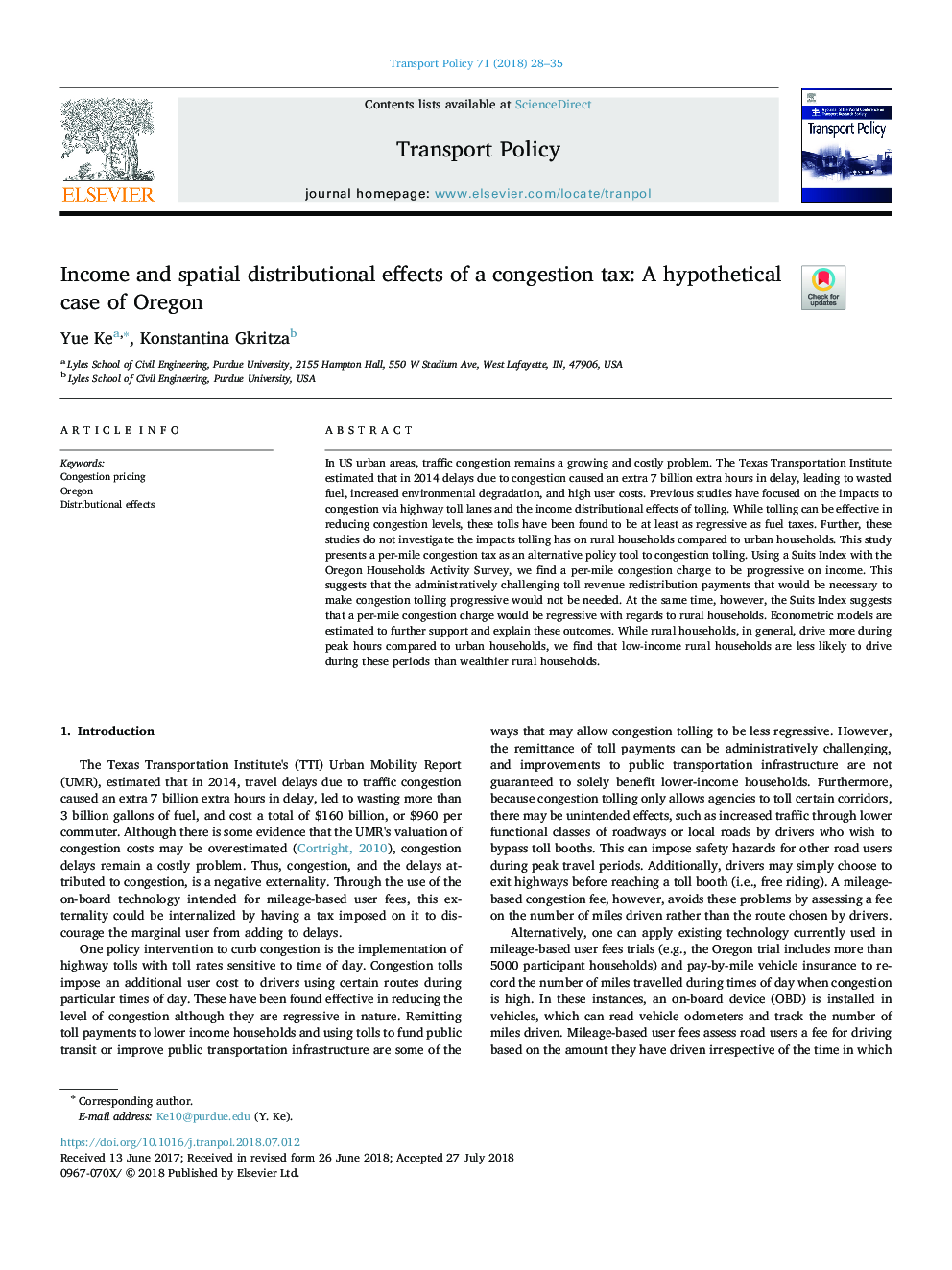| Article ID | Journal | Published Year | Pages | File Type |
|---|---|---|---|---|
| 7496804 | Transport Policy | 2018 | 8 Pages |
Abstract
In US urban areas, traffic congestion remains a growing and costly problem. The Texas Transportation Institute estimated that in 2014 delays due to congestion caused an extra 7 billion extra hours in delay, leading to wasted fuel, increased environmental degradation, and high user costs. Previous studies have focused on the impacts to congestion via highway toll lanes and the income distributional effects of tolling. While tolling can be effective in reducing congestion levels, these tolls have been found to be at least as regressive as fuel taxes. Further, these studies do not investigate the impacts tolling has on rural households compared to urban households. This study presents a per-mile congestion tax as an alternative policy tool to congestion tolling. Using a Suits Index with the Oregon Households Activity Survey, we find a per-mile congestion charge to be progressive on income. This suggests that the administratively challenging toll revenue redistribution payments that would be necessary to make congestion tolling progressive would not be needed. At the same time, however, the Suits Index suggests that a per-mile congestion charge would be regressive with regards to rural households. Econometric models are estimated to further support and explain these outcomes. While rural households, in general, drive more during peak hours compared to urban households, we find that low-income rural households are less likely to drive during these periods than wealthier rural households.
Related Topics
Social Sciences and Humanities
Social Sciences
Geography, Planning and Development
Authors
Yue Ke, Konstantina Gkritza,
